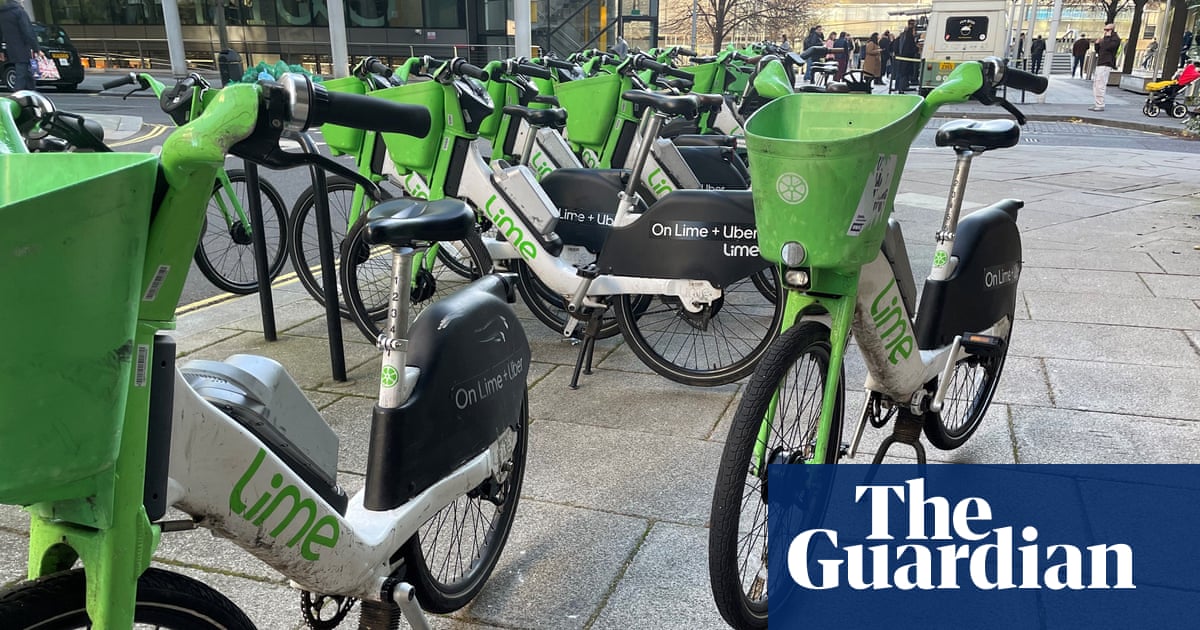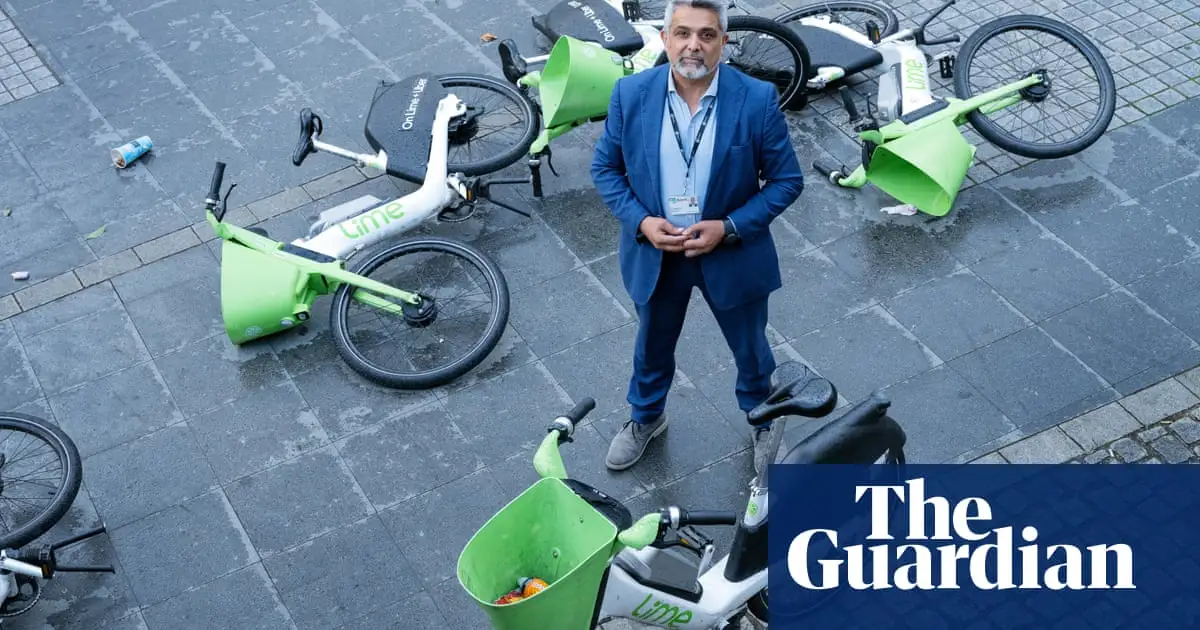Liberal, Briton, ‘Centrist Fun Uncle’. Co-mod of m/neoliberal and c/neoliberal.
- 64 Posts
- 125 Comments
The MPs wanted Cleverly anyway but they shit the bed trying to engineer an easy opponent for him in the final two. He’s now said he’s not going to join the shadow cabinet, so while Badenoch has to deal with all the struggles of being LOTO, Cleverly will be on the backbenches, giving speeches to constituency parties, improving his reputation, sounding like some sort of experienced elder statesman to contrast with Badenoch.
A VONC to put Cleverly in charge seems very likely unless Starmer’s polling numbers really tank over the next few years.
This is patently absurd. Labour already inherited the highest tax burden in 70 years from the Conservatives - this budget increases the tax burden by a further £40bn to fund extra spending. Government borrowing is also going to increase by an average of £32bn a year for the next five years due to this budget.
If this is what they call austerity, I’d hate to see what these people think government largesse looks like…

 3·2 months ago
3·2 months agoThe mask always slips.

 3·2 months ago
3·2 months agoHow do you define ‘large percentage’? Musk owns 22% of Tesla shares whereas small business owners may own 100% of their business. Do you think Musk is more working class then the latter?
Shares are just an asset just like cash. Some people choose to hold their savings in cash. Some people choose to hold them in bonds, some in shares, some in property, and so on.
When I was younger and poorer than I am today, I owned a larger value of shares than I do now because I was still saving up for a deposit on my house. Then I took out my mortgage, bought the house and the value of my ISA dropped to almost nothing as I sold most of the shares to fund my deposit. Do you think I was a capitalist when I was poorer and didn’t own a house, but working class now that I have a mortgage but fewer shares?
The form in which you hold your assets is irrelevant. It’s how much assets you have that counts.

 2·2 months ago
2·2 months agoYes, in many ways it’s so much dumber. If I’m taking home a salary from Company A, my livelihood is dependent on Company A, and then as part of my pay package I get given $1000 of shares in Company A, then I would cash them in as soon as l could and buy a diversified portfolio of shares in Companies B, C, D, E, etc instead.
Keeping all your eggs in one basket is a bad idea. But keeping all your eggs in a basket whose performance is directly correlated with your risk of getting made redundant seems an exceptionally bad idea!
Also, you realise that everyone who has a pension is an indirect owner of shares in hundreds of different companies? Part of the problem of Starmer using this sort of idiotic language is that it willfully plays on and exacerbates voters’ lack of awareness of the world they live in and where their pension savings are going…

 34·2 months ago
34·2 months agoNon-paywall link: https://archive.ph/fx3ug
Such a damningly poor and out-of-touch judgment from Starmer.
3 in 10 Britons own shares directly (i.e. not counting the many more who own them via their pension funds), the vast majority of them being very much working people who bring home most of their income through their salaries. The ISA system directly incentivises people to invest up to £20k a year tax free.
Most generally, at a time when the government claims to interested in boosting investment in the UK, it is a mad decision for the prime minister to come out against share ownership at a time when he should be encouraging Britons to invest more in shares and less in cash savings products.

 6·2 months ago
6·2 months agoHow the turntables…

 47·2 months ago
47·2 months agoWhether he wins or loses, I still cannot fathom how a candidate like this can poll 45%+ in a country purporting to be a modern democracy.

 5·2 months ago
5·2 months agoWill the clocks still go back and forward an hour to help the farmers get up early though?

 1·3 months ago
1·3 months agoHe’s obviously talking his own book, but there does seem to be genuine concern that the government’s analysis of the non-dom crackdown suggests that, yes, it will lead to a reduction in tax revenue. Because many of these people can in fact just move…

 14·3 months ago
14·3 months agoI’m still annoyed that the Daily Star keeps getting credit for this joke.
The joke about Truss’s premiership having the shelf life of a lettuce was from the Economist. And it wasn’t about the 49 days she was PM - it was referencing the seven days or so that Truss was actually in the driving seat, once you take away the mourning period around the Queen’s death when nothing could happen, and then the period after the mini-budget when Jeremy Hunt and the grown-ups took charge.
What the Star did was just riff on the Economist’s joke by setting up a webcam.

 8·3 months ago
8·3 months agoA recent migrant, identifying himself as ‘Nigel F from Clacton’, told reporters he was thrilled by his new life in Russia and the prospect of not having to see brown people at the shops or gay people on TV anymore.

 1·3 months ago
1·3 months agoIt does seem extraordinarily naive.

 22·3 months ago
22·3 months agoBut the tribunal heard neither Ms Jones nor the customer was interviewed, no notes were produced by Mrs Smith and no written account of the decision was made.
[…]
The judge said: "The disciplinary process and the dismissal were a sham designed to placate the customer.
What I know about HR is that the employer actually has a tonne of leeway to get rid of people as long as they can demonstrate they have followed a proper process with an audit trail.
The reason this person was fired that’s mentioned in the headline (which I think isn’t unreasonable - of course you can’t call the customer a twat!) is kind of irrelevant here, it’s the fact the employer didn’t run a true process to back up the decision that has got them.

 4·3 months ago
4·3 months agoThe state’s case rested on testimony from Allah’s friend and co-defendant, Steven Golden, who was also charged in the robbery and murder. As their joint trial was beginning, Golden pleaded guilty to murder, armed robbery and criminal conspiracy and agreed to testify against Allah. Golden, who was 18 at the time of the robbery, said Allah shot Graves.
But on Wednesday, two days before the scheduled execution, Golden signed a bombshell affidavit recanting his testimony, saying Allah “is not the person who shot Irene Graves” and “was not present” during the robbery. Golden’s declaration said he was high when police questioned him days after the robbery, and that he was pressured into writing a statement blaming Allah.
“I substituted [Allah] for the person who was really with me,” he wrote, saying he concealed the identity of the “real shooter” out of fear that “his associates might kill me”. He did not identify this person.
Golden said he agreed to plead guilty and testify when prosecutors assured him he would not face the death penalty or a life sentence if he cooperated – a deal that was not disclosed to the jury.
I feel sick reading this.

 2·3 months ago
2·3 months agoWait, how many 25 year olds in 2024 do you think remember the Mighty Boosh (2003-07), or Chicken Run (2000), or Who Shot Phil Mitchell (2001), or Caroline Quentin-era Jonathan Creek (1997-2000), or know people who were extras in the Harry Potter films (2001-11), or remember the Animals of Farthing Wood TV programme (1993-97), or spilled their drink on Miquita Oliver at a squat party in 2007 (2007)?

 2·3 months ago
2·3 months agobut leaving them anywhere helps everyone
Leaving them anywhere is the whole problem. My neighbour is in his 70s and uses a mobility scooter. I see parents having to detour their pushchairs onto the road to get around them. People are literally leaving these bikes lying horizontal across the pavement!

 172·3 months ago
172·3 months agoThis isn’t a problem with bikes that individuals own. This isn’t a problem with the Santander bikes either. This is a specific problem with Lime bikes and the likes, because the Lime bike system is set up to encourage people to dump their bikes anywhere and Lime does nothing to discourage this. Lime is a multi-million pound private enterprise that is profiting on what is effectively the littering of our public spaces.
Personally I’d favour using punitive market-based mechanisms to solve this - fine Lime £100 or £200 for every mis-parked bike, which would align their incentives with society’s and quickly lead them to being a lot more discerning about who they rent their bikes out to and how they enforce against misuse of the bikes. But I suspect this would destroy their business model anyway - the overwhelming majority of Lime bikes I see out and about are not parked in an orderly way, so what you’re calling a public disorder problem must account for the vast majority of their customer base - it’s a business model set up to cater to hooligans. So maybe just banning the product outright is the better option. The Santander bikes are very widely available for anyone who needs them and they operate with a system that overwhelmingly enforces orderly parking.

 32·3 months ago
32·3 months ago🥳















The goal here is that it’s famously difficult for third parties to get an appropriate measure of media attention in the UK. The newspapers are highly partisan, and the TV news interprets the ‘balance’ requirement to mean they can just give the government view and the main opposition view on every issue (unless the government and main opposition happen to agree - which is why the Lib Dems got a fair hearing in the media on Iraq in the early 2000s).
So third parties need to have a gimmick to trick the media into giving them airtime, which then allows them to talk about their issues. Charles Kennedy did it but being entertaining on chatshows and HIGNFY; Nigel Farage does it by being outrageous and offensive; and Ed Davey has worked out that he can do it through stunts.